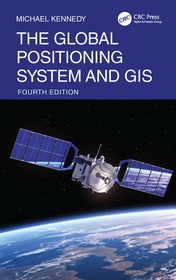
The Global Positioning System and GIS
- Publisher's listprice GBP 105.00
-
50 163 Ft (47 775 Ft + 5% VAT)
The price is estimated because at the time of ordering we do not know what conversion rates will apply to HUF / product currency when the book arrives. In case HUF is weaker, the price increases slightly, in case HUF is stronger, the price goes lower slightly.
- Discount 10% (cc. 5 016 Ft off)
- Discounted price 45 147 Ft (42 998 Ft + 5% VAT)
Subcribe now and take benefit of a favourable price.
Subscribe
50 163 Ft

Availability
Not yet published.
Why don't you give exact delivery time?
Delivery time is estimated on our previous experiences. We give estimations only, because we order from outside Hungary, and the delivery time mainly depends on how quickly the publisher supplies the book. Faster or slower deliveries both happen, but we do our best to supply as quickly as possible.
Product details:
- Edition number 4
- Publisher CRC Press
- Date of Publication 28 November 2025
- ISBN 9780367506063
- Binding Hardback
- No. of pages442 pages
- Size 234x156 mm
- Weight 453 g
- Language English
- Illustrations 23 Illustrations, black & white; 135 Illustrations, color; 3 Halftones, black & white; 126 Halftones, color; 20 Line drawings, black & white; 9 Line drawings, color; 6 Tables, black & white 700
Categories
Short description:
As GIS representations of the Earth in 3D become more precise and GPS services allow for greater accuracy, the information presented in this new edition has changed considerably. It guides users through methods to build a highly accurate geographical database and understand how GNSS interoperates with 3D Earth scans obtained from LiDAR.
MoreLong description:
Now in its fourth edition, The Global Positioning System and GIS arrives at a critical moment of transition— a time when new methods for collecting position and attribute data are reshaping how information is integrated into Geographic Information Systems (GIS).
This edition is uniquely structured to reflect this shift: each chapter is divided into two sections— one covering “Newer Technology,” including the latest advances in hardware, software, and cloud- based data collection, and the other preserving and refining “Older Technology” techniques from the third edition.
As GIS platforms represent the Earth with increasing precision and Global Navigation Satellite Systems (GNSS) deliver accuracy down to the centimeter, this book equips readers with proven, practical methods for building highly accurate and actionable geospatial datasets across a wide variety of devices and platforms.
Features:
• Step- by- step tutorials for hands- on learning, balancing theoretical foundations with practical application.
• Covers both ArcGIS Pro (ESRI) and QGIS (open- source), ensuring students and professionals can work across essential GIS platforms.
• Supports a broad range of devices: Android, iOS, and Trimble receivers.
• Provides downloadable datasets for instructors to use in exercises, examples, and exams.
• Features an entirely new chapter by GPS World former Editor- in- Chief Matteo Luccio, along with exclusive interviews with GPS and GIS pioneers Brad Parkinson, Charlie Trimble, and Jack Dangermond.
Clear, practical, and deeply informed by the evolution of the field, The Global Positioning System and GIS, first published in 1996, remains the definitive resource for anyone working where geospatial accuracy matters— from students and researchers to GIS professionals across all disciplines.
More
Table of Contents:
1. Basic Concepts. 2. More on GPS Data Collection. 3. Examining GPS Data. 4. Differential Correction, DOQs, and ESRI Data. 5. Integrating GPS Data with GIS Data. 6. Attributes and Positions. 7. GNSS: Past, Present, and Future.
More




